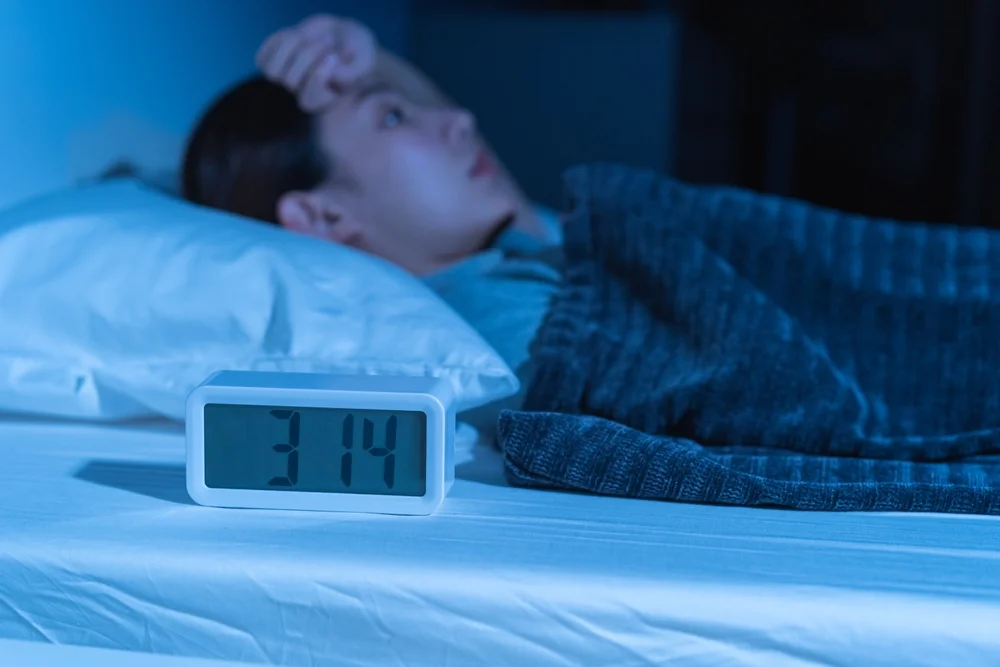Does Zepbound Cause Insomnia? A Comprehensive Look at Tirzepatide’s Side Effects
Tirzepatide, marketed under the name Zepbound, has taken the weight loss world by storm. This innovative GLP-1 and GIP receptor agonist has been hailed as a breakthrough for individuals struggling with obesity and type 2 diabetes. But like any medication, Zepbound isn’t without its potential side effects. Among the concerns raised by users and healthcare professionals alike is the possibility of insomnia.
In this article, we’ll explore whether Zepbound causes insomnia, delve into the science behind its mechanism of action, and discuss how individuals in Sacramento and beyond can manage their sleep health while on tirzepatide. Whether you’re considering Zepbound for weight loss or managing diabetes, understanding its impact on sleep is a vital component of informed decision-making.
What is Zepbound, and How Does it Work?
Zepbound (tirzepatide) is a dual agonist that targets two critical pathways in the body: glucagon-like peptide-1 (GLP-1) and glucose-dependent insulinotropic polypeptide (GIP). These pathways regulate blood sugar, appetite, and energy balance. By activating both receptors, Zepbound enhances insulin sensitivity, slows gastric emptying, and suppresses hunger, making it a powerful tool for weight loss and diabetes management.
However, altering these metabolic pathways can also lead to unintended side effects, including gastrointestinal issues, fatigue, and, for some users, changes in sleep patterns. Understanding how Zepbound interacts with the body can shed light on why insomnia may occur in certain individuals.
Insomnia and Weight Loss Medications
Insomnia is not an uncommon side effect of medications that influence metabolism and appetite. Weight loss drugs, in particular, often come with reports of disrupted sleep. But why?
- Increased Metabolic Activity: Medications like Zepbound ramp up metabolic processes, which can increase energy levels and interfere with the body’s natural wind-down process.
- Hormonal Shifts: Tirzepatide affects hormones like insulin and glucagon, which may indirectly influence cortisol and melatonin levels—two key players in sleep regulation.
- Appetite Suppression: For individuals who drastically reduce calorie intake while on Zepbound, hunger or fluctuating blood sugar levels could potentially disrupt sleep.
Understanding these factors is essential for anyone using Zepbound in Sacramento or elsewhere to navigate its side effects and optimize their results.
Does Zepbound Directly Cause Insomnia?
Clinical trials for tirzepatide have documented a range of side effects, including nausea, diarrhea, and fatigue. Insomnia, however, is not listed as a primary adverse effect. Yet, anecdotal reports from Zepbound users suggest that some individuals experience difficulty falling or staying asleep after starting the medication.
Potential Indirect Causes of Insomnia with Zepbound
While Zepbound may not directly cause insomnia, several indirect factors could contribute to sleep disturbances:
- Nausea and Stomach Discomfort: Gastrointestinal issues are among the most common side effects of Zepbound. Nighttime nausea or bloating may disrupt sleep.
- Changes in Appetite and Energy Levels: Suppressed appetite and increased energy during the day could lead to difficulties winding down at night.
- Weight Loss and Hormonal Shifts: Rapid weight loss can impact hormone levels, including cortisol, which may contribute to restless nights.
It’s also worth noting that sleep disturbances could be related to lifestyle changes accompanying Zepbound use, such as dietary modifications or increased physical activity.
How Common is Insomnia Among Zepbound Users?
Insomnia does not appear to be a widespread complaint among Zepbound users based on available data. However, individual experiences vary, and those in Sacramento and other regions who are considering tirzepatide should monitor their sleep patterns closely after starting the medication.
Insights from Sacramento Patients
Local patients using Zepbound for weight loss or diabetes management report mixed experiences. While some describe improved energy and well-being, others note difficulty sleeping, particularly in the early weeks of treatment. These differences highlight the importance of personalized medical guidance when using tirzepatide.
Strategies for Managing Insomnia on Zepbound
If you suspect that Zepbound is affecting your sleep, there are practical steps you can take to mitigate insomnia:
1. Establish a Sleep Routine
Creating a consistent sleep schedule can help regulate your body’s internal clock. Try to go to bed and wake up at the same time every day, even on weekends.
2. Monitor Your Diet
Avoid caffeine and heavy meals in the hours leading up to bedtime. If you experience nighttime nausea from Zepbound, consider small, easily digestible snacks before bed.
3. Stay Active
Regular exercise can promote better sleep, but avoid vigorous workouts close to bedtime, as they might leave you too energized to fall asleep.
4. Relaxation Techniques
Incorporate relaxation strategies like deep breathing, meditation, or a warm bath to help calm your mind and body before bed.
5. Adjust Medication Timing
Consult your healthcare provider about whether altering the time you take Zepbound could minimize its impact on your sleep. Some patients in Sacramento have found that morning administration helps reduce nighttime side effects.
6. Seek Professional Guidance
If sleep disturbances persist, work with your doctor to rule out other potential causes of insomnia, such as stress, anxiety, or unrelated medical conditions.
The Bigger Picture: Zepbound’s Benefits vs. Side Effects
For many users, the benefits of Zepbound far outweigh its drawbacks. The medication’s ability to support significant weight loss and improved glycemic control can lead to life-changing outcomes. However, any side effects, including potential insomnia, should be carefully managed to ensure optimal results.
Sacramento’s Perspective on Weight Loss and Sleep
In a city like Sacramento, where wellness and holistic health are a priority, patients often balance the pros and cons of medications like Zepbound with an emphasis on overall well-being. Local clinics specializing in medical weight loss offer comprehensive support to address side effects, including sleep disturbances, ensuring that patients achieve sustainable results.
Why Sleep Matters for Weight Loss Success
Sleep plays a critical role in weight management. Poor sleep can disrupt hormones like leptin and ghrelin, which regulate hunger and satiety, potentially undermining the appetite-suppressing effects of Zepbound. Additionally, insufficient rest may reduce energy levels, making it harder to stick to exercise routines.
For Sacramento residents using tirzepatide, prioritizing sleep health is a key part of their weight loss journey. By addressing insomnia early, patients can maximize the effectiveness of Zepbound and achieve their goals more efficiently.
Frequently Asked Questions About Zepbound and Insomnia
1. Is insomnia a common side effect of tirzepatide?
While insomnia is not a commonly reported side effect in clinical trials, individual experiences vary. Some users report difficulty sleeping, particularly during the first few weeks of treatment.
2. Can Zepbound improve sleep for some users?
Interestingly, some patients experience improved sleep quality as a result of weight loss and better glycemic control on tirzepatide. Each individual’s response to the medication is unique.
3. Should I stop taking Zepbound if I experience insomnia?
Always consult your healthcare provider before making any changes to your medication. Insomnia can often be managed with lifestyle adjustments or changes to your treatment plan.
4. How can Sacramento clinics help with Zepbound-related insomnia?
Local clinics specializing in medical weight loss and diabetes management can provide tailored support, including advice on sleep health and medication timing.
Conclusion: Striking a Balance with Zepbound
Does Zepbound cause insomnia? While the evidence doesn’t point to a direct link, individual responses to tirzepatide vary. Factors like hormonal shifts, gastrointestinal side effects, and lifestyle changes may contribute to sleep disturbances for some users. However, with proper management, most individuals can mitigate these effects and enjoy the significant benefits Zepbound offers.
For Sacramento residents considering Zepbound for weight loss or diabetes management, partnering with a knowledgeable healthcare provider is essential. Synchronicity Health specializes in personalized care for tirzepatide patients, ensuring you receive the support needed to overcome side effects and achieve your goals.
If you’re ready to take the next step in your weight loss journey or want to learn more about Zepbound, contact Synchronicity Health in Sacramento today. Together, we’ll help you navigate your options and create a plan tailored to your needs.



